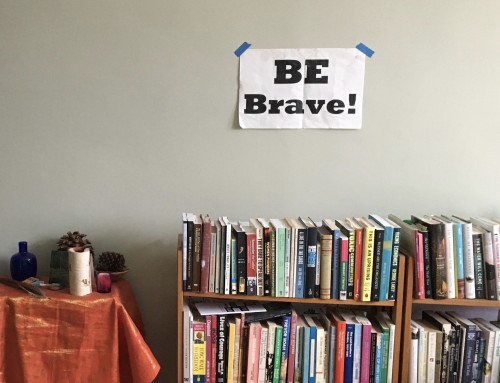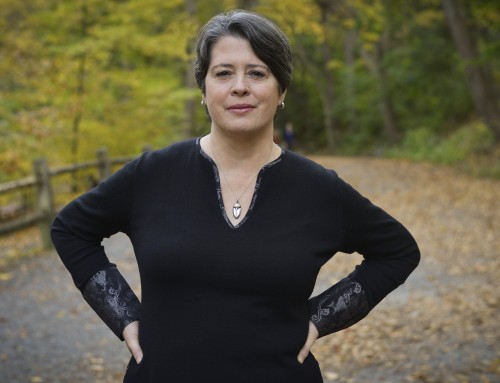There’s been a lot of political talk around our house lately, with the mid-term elections coming up and all. Even seven-year-old Luke has caught the vibe. After we recently heard Michael Jackson on the car radio singing “Billy Jean,” Luke started crooning his own version: “Dick Cheney is not my love…” He says he just couldn’t understand Jackson’s lyrics, but I think it’s evidence that our political indoctrination is working.
Our main focus has been the US Senate race between Rick Santorum and Bob Casey. Tom and I have been canvassing for Democrat Bob Casey, reconnecting with the moveon.org volunteers from the 2004 election. It feels good to be building a little progressive community in East Falls, which is not the most progressive neighborhood in Philadelphia. I also like the idea that we’re building a culture of voter turn-out, apart from any one election. Teaching the class on South African history makes me aware how we take for granted the right to vote, a right that so many people around the world have given their lives for.
The most inspirational thing I’ve heard lately was a talk at our Quaker meeting by two members of Combatants for Peace. The speakers were a Palestinian and an Israeli who have both laid down their weapons to pursue dialog. They each told their stories—the Palestinian had been a political prisoner, the Israeli an Air Force pilot—how they had come to work together, and why they believed in their work. During the question/answer period, they took turns addressing our concerns, often deferring to each other with obvious respect. The audience was rapt and sometimes teary eyed.
One of the most memorable parts for me was the way the young Israeli began his part of the talk. “Everything that I say and do, I do out of love of my country,” he said with gentle sincerity. He talked about why he always began this way, to make it clear that his criticisms of Israeli policy came out of love for Israel, not hate. He was calling Israel to its best ideals, the ones he had learned as a child, before he realized that Israeli democracy was not enjoyed by the people in the territories. He also argued that the violence against the Palestinians was not only bad for the Palestinians, it was bad for Israelis in the long term, ensuring they would never have lasting peace. He struck just the right tone, clear: honest, loving, and challenging. It struck me as a model of how to talk to Americans about the consequences of the United States’ aggressive foreign policy.
The problem here is that most people in the US are so far removed from the consequences of US policy they can’t imagine their long term effects. They certainly don’t know much history, if my college students are any indication. And most probably don’t want to know, if truth be told. This morning on CNN I think Barbara Streisand’s use of the F-word during a concert got more coverage than a new study putting the Iraqi death toll at 655,000. It’s hard not to feel despair or shame sometimes, although those feelings don’t do anyone any good.
I’m frankly not sure Bob Casey is the guy who’s going to lead us out of Iraq, but I’m hoping the Democrats will if they regain the majority. Certainly “stay the course” isn’t working for anyone, except perhaps Halliburton and the other profiteers. (Can you sing “Dick Cheney is not my love?”)
In the end, the Palestinian and the Israeli—as well as the South Africans I teach about and the Freedom Riders I saw on “Eyes on the Prize” the other night—are all reminders that ordinary people can make a difference when they work together. It’s just a little nudge to keep organizing my corner of East Falls.




Ms. Flanagan,
I am afraid you will not feel as good about your “progressive community” when you Google on MoveOn.org and “racism” or “anti-Semitism.” Until my friends and I humiliated MoveOn into disabling its Action Forum, it was a welcoming platform for racist and anti-Semitic hate speech that even the Ku Klux Klan has enough sense not to spout nowadays. The stuff about Jews could have come straight from the German Nazi Party, and one racist said that Black soldiers should be segregated and disarmed as potential mutineers. This got overwhelming approval from the rest of the MoveOn community.
Needless to say, MoveOn sort of forgets to mention these little things to decent Pennsylvanians. Honesty is not among its virtues.
I was thinking of voting for Casey until I learned of his connection with MoveOn.org. His refusal to disown MoveOn’s endorsement totally disqualifies him from receiving the vote of any decent person.
I was quite suprised by the comment posted by Bill Levinson since I have never heard racism or anti-semitism from the moveon members I know or in the letters I regularly receive from them. Certainly there is nothing racist or anti-semitic in our work against Rick Santorum, who seems to me to be the hate-monger among the two candidates. So I did a quick google search, as Bill suggested, and the controversy seems to be about posts to moveon’s Action Forum, not the policies of the organization itself. So without doing extensive research, here are a few gut reactions:
Of course I’m against racism and anti-semitism, and I hope it’s not true that moveon’s site is being used to foster hate. But I recently found many racist comments on a Philadelphia Inquirer message board about gun violence in Philadelphia, and when I challenged them, I got shouted down in cyberspace (a disheartening experience). Although this lowered my opinion of my fellow Philadelphians, I didn’t take it as reflecting the views of the Philadelphia Inquirer or of any political candidates that paper might endorse. Especially knowing that historically right wing groups have often infultrated progressive groups and then spouted the most rediculous things to make those groups look bad (i.e. the peace movement during the Vietnam War suffered from this), I am skeptical of this sudden discovery that moveon is racist and anti-semitic five weeks before a critical election, where the balance of power in the Congress is at stake and moveon’s get-out-the-vote work and fundraising will be critical.
I have no doubt that racism and anti-semitism still exist in this country and should be fought, but I do seriously doubt that those are the things moveon stands for. It sounds like a right wing conspiracy to me.
After the election, I’ll look into this moveon controversy more. Until then I plan to continue working for Bob Casey who has better policy positions on the environment, health care, jobs, the minimum wage, and the war in Iraq, and marriage equality.
After a little more poking around the websites that are attacking MoveOn, I am even more suspicious about their motives. The organization’s response can be found in their September press release at:
http://www.moveon.org/press/
(for some reason I was not able to copy the contents from the Adobe file)
My best to you in your policital work Eileen. :o) The talk by the two former soldiers sounds amazing.
Stephanie
I’ve been a member of MoveOn for several years now and this is the first I have EVER heard of anti-Semtic or racist views on their part. In fact, I strongly believe that MoveOn is actively against any such views and/or speech. I will also add that this is not the first time MoveOn has been the target of extreme attempts to discredit the organization.
I believe I’ll have “Dick Cheney is not my love” in my head for the rest of the day! Maybe tomorrow too! 🙂
Great post. I linked you in my blog.
Love your kid’s song!
The ripples that come from the pebble you tossed into the pond are being felt all the way up here in Seattle. Thanks for this post!